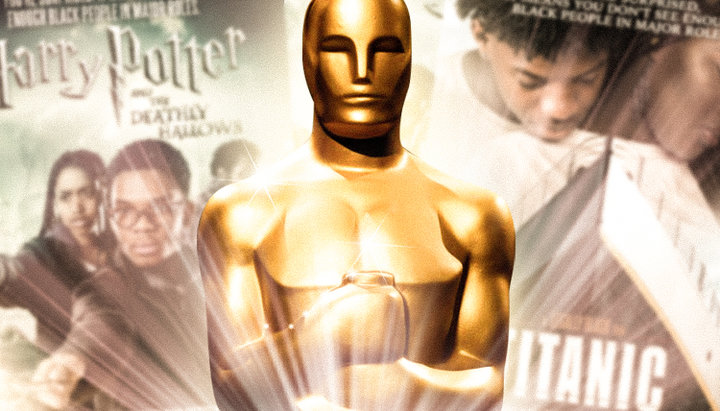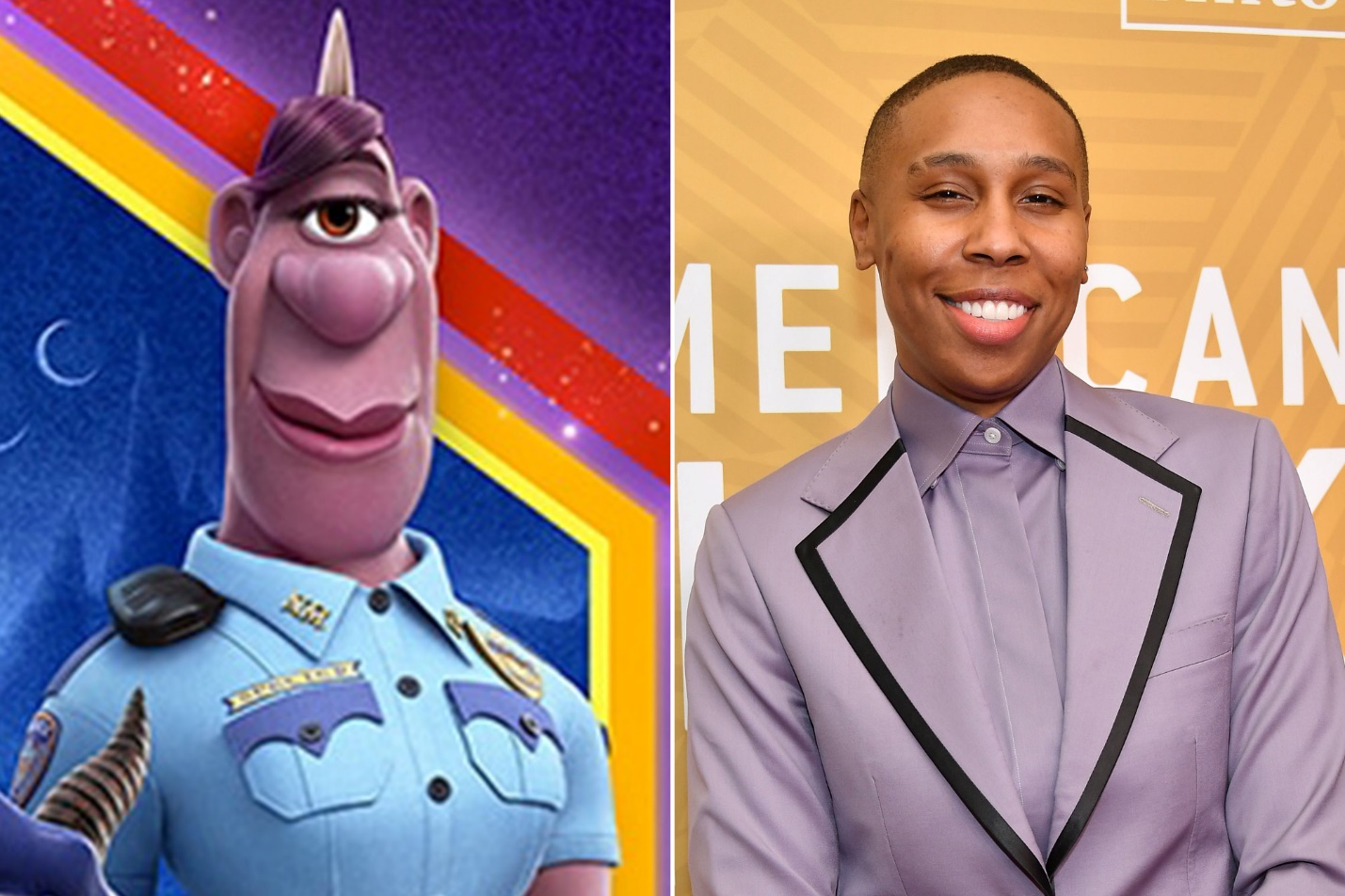What the “Oscar” is awarded for now

American cinema has new inclusion standards now – directors are required to film LGBT, people with disabilities, national minorities, etc. How should we take this?
The American Film Academy has announced that from 2024 onwards, films that qualify for an Oscar will have to meet new standards. There are four of them: A, B, C, and D. For an application to be deemed eligible, it must meet at least two of these standards to be deemed eligible. These standards include the following:
Standard A:
- At least one of the lead actors or significant supporting actors is from an “underrepresented” racial or ethnic group: Asian, Hispanic/Latinx, Black/African American, Indigenous/Native American/Alaskan Native, Native Hawaiian. etc.
- At least 30% of all actors in secondary and more minor roles are from at least two of the following underrepresented groups: women, racial or ethnic group, LGBTQ, people with cognitive or physical disabilities, or who are deaf or hard of hearing.
- The main storyline(s), theme or narrative of the film is centred on an underrepresented group(s).
Standard B: Representatives of “underrepresented” groups are in leadership positions in the film company or production team.
Standard C: The film’s production, distribution and/or financing company offers paid apprenticeship/ internship and training opportunities for people from the underrepresented groups.
Standard D: The studio and/or film company has multiple in-house senior executives from among the underrepresented groups in marketing, publicity, and distribution.
Notable are the words with which representatives of the Film Academy explained the innovation: “We believe these inclusion standards will be a catalyst for long-lasting, essential change in our industry.”
In other words, the audience will have to see gays, lesbians, actors with non-white skin colour, the mentally ill or the mentally insane on the screen. And given that cinema in today's world is probably the main tool for shaping people's world views, it becomes clear what this is all about: for people to gradually become the same.
In 2016, “Moonlight” was released, which soon won the Golden Globe Award for Best Drama and was nominated for an Oscar in 8 different categories. The film is about the life of troubled African Americans with a homosexual storyline.

Everything is exactly as it is now spelt out in the requirements for films that will be nominated for an Oscar in the future. That is, from 2024, all films that claim for a statuette of the American Film Academy should be approximately the same. Given that such a statuette is the dream of all directors and producers, then it gets completely sad.
New Oscar nomination rules – сommon censorship?
There are two aspects to the new Oscar nomination rules. The first was formulated by the head of the press service of the Patriarch of Moscow and All Russia, Vladimir Legoyda. He drew attention to the ideological similarity between the new rules of the American Film Academy and the Soviet censorship.
"It seems that you can say goodbye to the freedom of creativity in a particular film community. I think that the old generation of the Russian creative elite, who made films during the Soviet censorship era, will have something to compare with. <...> It seems that American cinema is becoming a tool of crude ideological propaganda, ignoring creativity and talent. Or, if freedom of speech and creativity wins, sooner or later these shackles will be thrown off," wrote Legoyda on his Telegram channel.
Yes, the new Hollywood rules are nothing more than censorship. Of course, no one forbids making films that do not meet these rules. But such a movie will no longer attract adequate finance, popular actors, talented operators, creative marketers, and so on. After all, a film project that has no chance of being nominated for an Oscar is unlikely to interest them. This all strongly narrows down creative ideas in the film industry, forcing them to shoot only what LGBT ideologists and other tolerants need.
The new Hollywood rules are nothing more than censorship. Of course, no one forbids making films that do not meet these rules. But such a movie will no longer attract adequate finance, popular actors, talented operators, creative marketers, etc.
This was not only the case in the Soviet Union; any authoritarian state tried in one way or another to make writers, poets, artists, film-makers and other creative people promote the ideology that prevailed in that state. Today, the USA, and many European countries as well, are turning into such states, where it is necessary to respect the rights of LGBT people, migrants, national and other minorities, but where it is impossible to say that "...neither the sexually immoral, nor idolaters, nor adulterers, nor men who have sex with men, nor thieves, nor the greedy, nor drunkards, nor revilers, nor swindlers will inherit the Kingdom of God" (1 Cor. 6, 9-10).
Censorship shapes a new reality
Another aspect is that LGBT and other minority communities have long since ceased to be persecuted. Their ideologies are now being openly imposed on society. The creative person can no longer count on success if he/she does not follow the guidelines set by liberal censorship. He/she is forced to create clearly within the framework of this ideology: to glorify African Americans, to create a halo of respect around LGBT people and so on. And the creative person, in turn, with their literary or film masterpieces, forms in society an appropriate understanding of what is good and what is bad, what is the norm and what is a deviation from it.
Thus, the formed public worldview, for example, already takes for granted how innocent people who were "unlucky" to be born with black skin kneel in front of riotous crowds smashing shops and burning cars.
A few days ago, there was an indicative case at the National Basketball Association (NBA). African American Montrezl Harrell publicly called his rival team player, Slovenian Luca Dončić, "a cowardly white ass". And no one was outraged, no one raised a scandal, no one threw Harrell out of the NBA. One can only imagine a storm of indignation if the insult sounded in reverse order.
It is even sadder to see the LGBT ideology being imposed on young children. For the past few years, gay characters have been present in American cartoons. Here are some recent examples. In early May 2020, two Hollywood studios, Disney and Pixar, creators of megapopular cartoons, released the cartoon "Onward", which featured a minor lesbian character called Specter, a cyclops police officer. The cartoon itself, by the way, teaches children magic, but that is not what it is about now. The announcement for the cartoon specifically emphasises that this cyclops is voiced by an open lesbian actress, Lena Waithe.

And at the end of May 2020, the same film companies released the cartoon "Out", where homosexuals are the main characters, and their relationship is the basis of the plot. The film is intended for the 6+ age category.

We all know very well the peculiarities of the child's psyche when a child imitates his or her favourite characters and strives to be like them. It is easy to guess that by influencing the children's audience, the ideologists of the new reality are shaping tomorrow, a day in which sexual perversions will become not just the norm, but a role model.
How to resist it?
The easiest thing to say is that you should not watch American films and cartoons. But if in Soviet times we had an excellent alternative, now we cannot say that. So, what should we do?
First, to invest financial, administrative, and most importantly, creative resources in the creation of masterpieces that reflect traditional values.
Take, for example, the “Pokrov” Orthodox Film Festival. It has been held for 17 years and it is high time to bring it to a qualitatively new level. It certainly requires significant material and other costs. It must not be a one-time outburst. But as a result, the festival can be a good alternative to the same Oscar.
We not only can but must do our best to teach our children the right attitude towards LGBT and the concept of sin in general, as well as to form a Christian mindset.
Another example is the film "Where Are You, Adam?" directed by Alexander Zaporoshchenko, which can be called a documentary masterpiece. The film's creators had to work hard to get the film to be distributed in cinemas. Now the film is in release but only in some cinemas and its shows are limited.
And secondly, we not only can but must do our best to teach our children the right attitude towards LGBT and the concept of sin in general, as well as to form a Christian mindset. We must not let Hollywood film producers steal the souls of our children from us. And to do this, we should pay as much attention to our children as possible, spend as much time with them as possible, and the main thing to remember is the golden rule of upbringing: children can't hear, children see. So, they are what they see in us.











